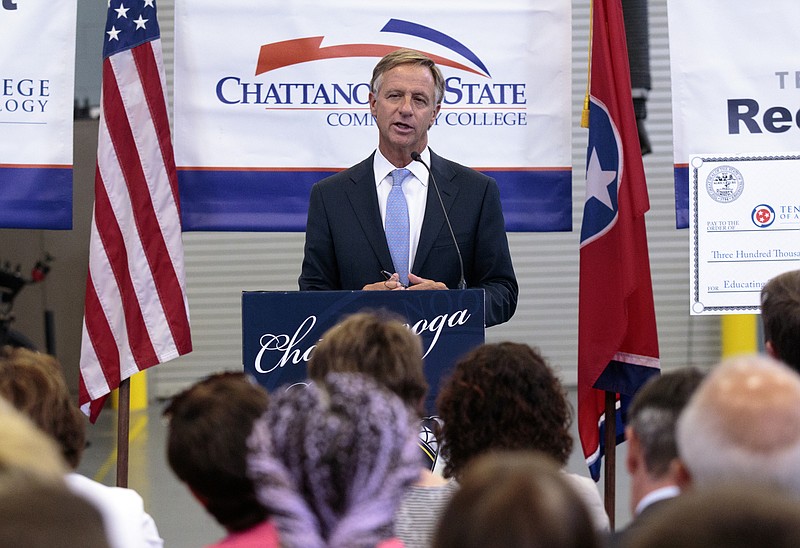NASHVILLE - The state is awarding Chattanooga and Hamilton County nearly $28 million in low-interest loans for local wastewater infrastructure improvements and planning, Gov. Bill Haslam and state Environment and Conservation Commissioner Bob Martineau announced today.
The money is part of $34.9 million in nine communities and one wastewater authority receiving loans statewide for water and wastewater infrastructure improvements.
Chattanooga is getting a $17.1 million traditional wastewater loan for the Moccasin Bend Wastewater Treatment Plant Improvements project. The 20-year loan carries a 1.53 percent interest rate.
The Moccasin Bend project is also getting another $1 million wastewater loan. That too is a 20-year loan with $100,000 in principal forgiveness that won't have to be repaid. The $900,000 carries a 1.53 percent interest rate.
Meanwhile, the Hamilton County Water and Wastewater Treatment Authority will receive a $7.31 million wastewater loan for the East Ridge Sewer Basin I/I Correction Project. That's being funded with a 20-year loan with an interest rate of 1.74 percent.
And WWTA is also getting another $1.56 million for a planning and design loan relative to a Sanitary Sewer Evaluation Survey and I/I Correction Project in Signal Mountain, Red Bank, Lookout Mountain, East Ridge and unincorporated county areas. The five-year loan carries a .82 percent interest rate.
The city of Cleveland, meanwhile, is getting a state drinking water loan of $430,000 for a Water Distribution System Improvements project. The project includes a drinking water storage tank and pump station. The loan is 1.31 percent.
Loan money comes from the State Revolving Loan Program which provides support for infrastructure needs in communities across Tennessee. It "leads to cleaner water and a better quality of life," Haslam said in a news release.
Through Tennessee's State Revolving Fund Loan Program, communities, utility districts, and water and wastewater authorities can obtain loans with lower interest rates than most can usually get through private financing. Interest rates for loans can vary from zero percent to market rate based on each community's economic index.
Loans utilizing EPA grant funds can include a principal forgiveness component.
Haslam said the water and wastewater loan program "leads to cleaner water and a better quality of life."
Commissioner Martineau said the fund "provides an opportunity for TDEC to help local communities provide clean drinking water for their residents. Financial support is one tool the state can use to help ensure Tennessee's water resources are preserved for future generations."
TDEC administers the State Revolving Fund (SRF) Program in conjunction with the Tennessee Local Development Authority. The U.S. Environmental Protection Agency provides grants to fund the program, and the state provides a 20 percent match. Loan repayments are returned to the program and are used to fund future SRF loans.
Projects' funding order is set by the SRF Program's Priority Ranking Lists that rank potential projects according to severity of pollution and/or compliance problems or for the protection of public health.
Chattanooga entered into a federal consent decree over storm water runoff pollution problems plaguing its system. Hamilton County's WWTA has had a number of problems as well.
Tennessee's Clean Water State Revolving Fund Program has awarded more than $1.9 billion in low-interest loans since it began in 1987. Tennessee's Drinking Water State Revolving Program has awarded more than $302.2 million in low-interest loans since its inception in 1996.
Earlier this month Haslam announced the formation of a steering committee to develop a statewide plan for future water availability. Dubbed "TN H2O," the plan will include an assessment of Tennessee's current water resources and provide recommendations to help ensure Tennessee has abundant water resources to support its future population and economic growth.
